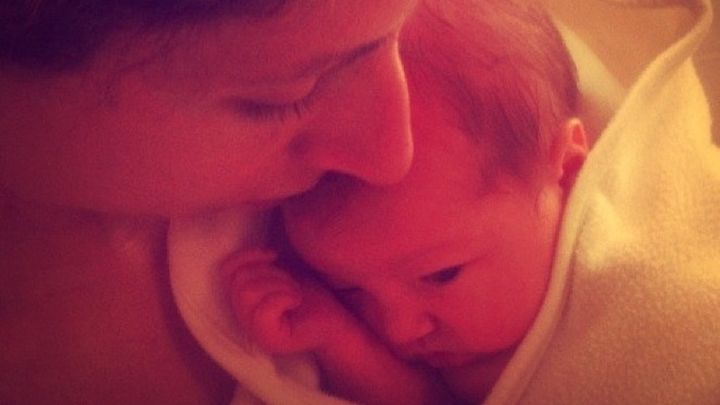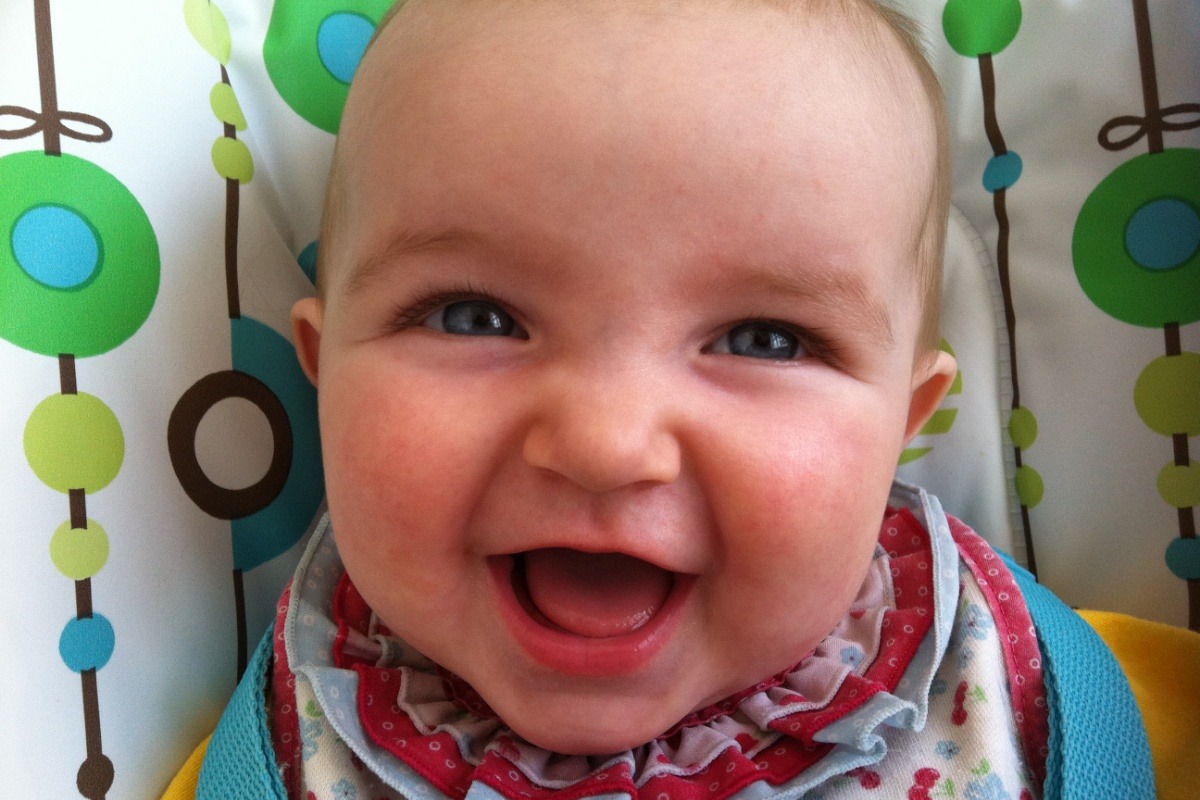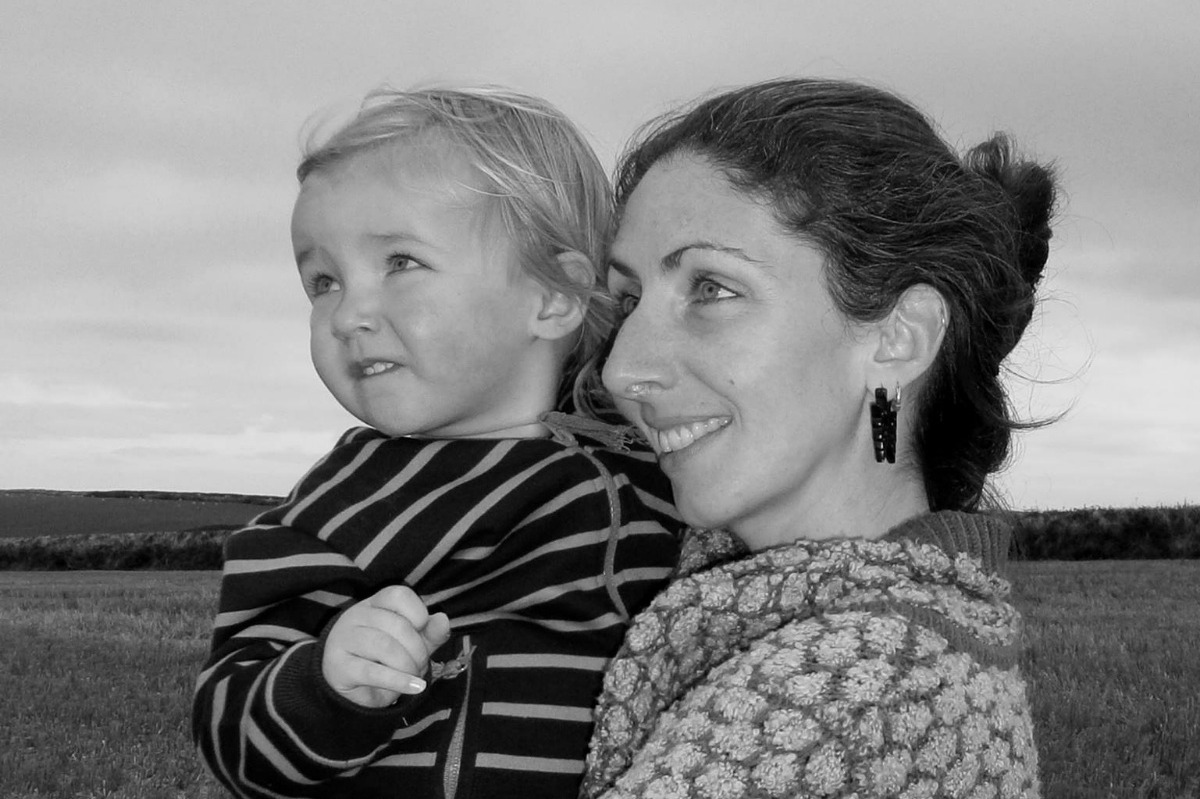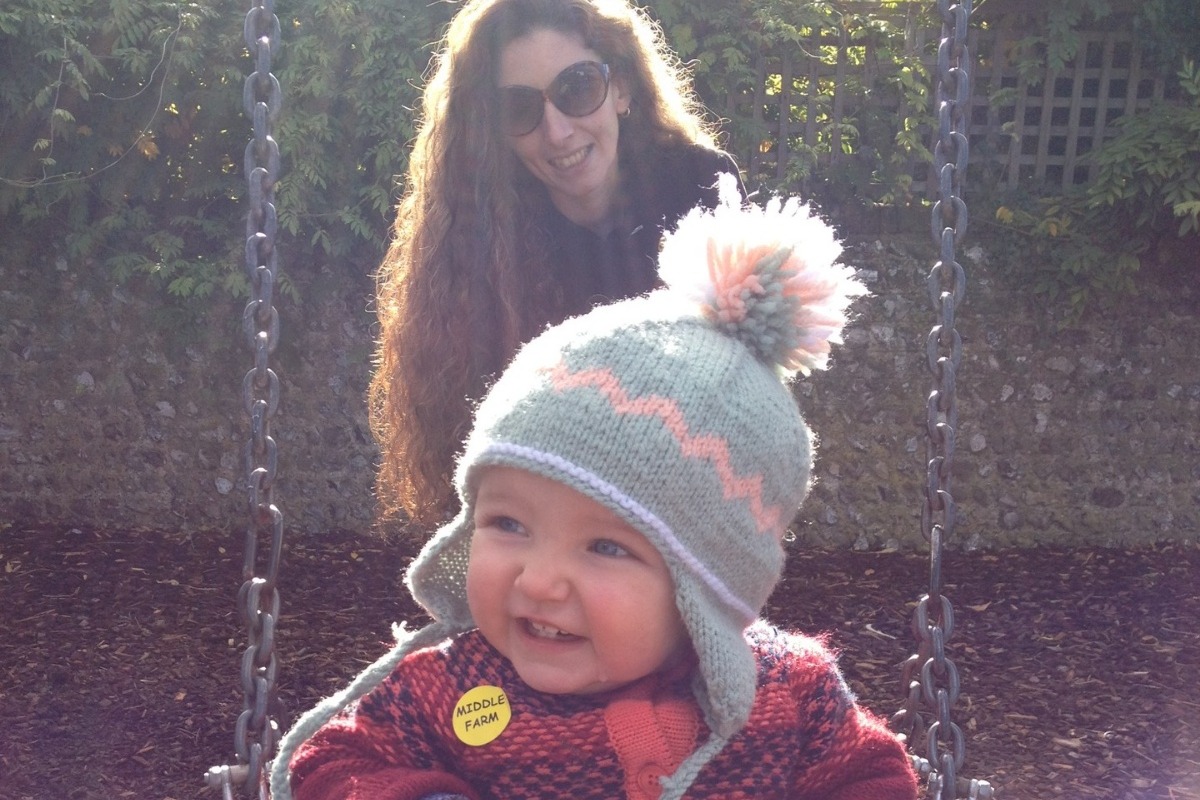
Prevent Maternal Suicide - Lizzy Dudeney PhD Fund
In the UK, suicide is the leading direct cause of maternal death within a year after pregnancy ends. Tragically, one in seven women who die between six-weeks and one-year after birth die by suicide.
There is an immediate need to address and minimise this devastating outcome.
The stigma and fear associated with disclosing suicidal thoughts and/or behaviours for pregnant women and new mothers is also a huge barrier to receiving treatment and support.
Please support my PhD research today by making a donation to this crowdfunding campaign.

Hello, my name is Lizzy Dudeney. I have recently started a PhD at the Centre for Maternal and Child Health Research, City, University of London where I am conducting important research into perinatal suicide risk and prevention (began, October 2019). This Centre conducts high-quality, multidisciplinary research that aims to improve the health and care of women, children and families. It has links with governmental, professional, voluntary and service user organisations, and many international partnerships. The Centre also has direct links with educational programmes at City, such as midwifery, health visiting and mental health nursing, which enable the rapid transfer of research into education and healthcare practice.
My supervisory team, Professor Susan Ayers, Professor Rose McCabe and Dr Rose Coates are experts in the fields of perinatal mental health, suicidal thoughts and behaviours, and perinatal mental health screening and assessment (respectively). With their guidance, I aim to identify the most acceptable, valid and reliable method of assessing suicidal thoughts and risk in perinatal women (for use within the healthcare setting) through my prospective three-year PhD programme.
However, embarking upon a PhD is a very expensive venture, unless you are one of the lucky few to receive a fully-funded studentship. The combined cost of tuition fees, basic living expenses and research related expenditure over three-years study is in excess of £65,000 (£21,660 per year) and I quite simply do not have this amount of money. I have applied for a PhD loan, but this will only cover about 1/3 of the cost. Therefore, I am reaching out to individuals, charities and organisations to humbly ask whether you might donate towards this socially beneficial research. ANY donation – be it small or large – is of significant value and will help to improve the outcomes for perinatal women who are experiencing suicidal thoughts and/or behaviours, their babies, their families/friends and their wider communities. Your support will also contribute towards the global concern in suicide prevention, understanding and awareness.

About me:
I am an ambitious woman and a mother to a beautiful eight-year old girl. However, shortly after her birth, I found myself overwhelmed with the physical and emotional challenges that new motherhood brought. I began to suffer with anxiety, depression and suicidal thoughts – which was not only terrifying – but also made me feel hopeless and a failure as a mother. I thought nobody else could or would understand. I was also scared that if I shared my thoughts and feelings, my daughter would be taken away or that my belief about being a ‘terrible mother’ would be confirmed. Likewise, even when I did speak to my doctor there was little that they could offer in terms of immediate or ‘appropriate’ mental health support. I felt stuck between a rock and a hard place. Fortunately for me, my family and friends recognised that I needed help and I was able to access the right type of support.
In 2013, I embarked upon a BSc in Psychology through the Open University – part-time whilst raising my daughter – where I graduated with First Class Hons (in 2017). My assignment marks were amongst the top 5% of students in my graduating year, and my final independent research dissertation was graded at 97%. I was then offered a scholarship to study at the University of Sussex, and I recently completed a full-time MSc in Applied Social Psychology with Distinction (in 2018). I was also awarded the ‘Maria Jahoda Prize for the Best Performance on the MSc in Applied Social Psychology, 2018’.
Since finishing my BSc and MSc, I have been working part-time as a Research Assistant at both the University of Brighton and the University of Sussex, and I have been employed by a leading Suicide Prevention Charity as their Assistant Charity Officer. I have also completed several extensive training courses in suicide awareness and intervention including, safeTALK, ASIST and MHFA.
I now want to become an expert in maternal suicide prevention. My lived experience coupled with my keenness and proven ability to conduct high-quality academic research means that embarking upon a doctorate in this specific area is a meaningful and appropriate fit with my ongoing interests and anticipated future career path. I want to carry out innovative research that is informed by and supports the needs and experiences of perinatal women; whilst also being of significant wider social benefit.

About my PhD research:
- Global mortality rates from suicide are estimated at 800,000 (reported) deaths per year.
- Suicide remains the leading cause of direct death for perinatal women, up to one-year after pregnancy ends.
- One in seven women who die between 6-weeks and one-year post pregnancy die by suicide.
- Perinatal mental health is currently recognised as a key priority in the UK Cross-Government Suicide Prevention Plan, 2019.
- More violent methods are commonly used in maternal suicide than in women at other times of life, potentially reflecting a higher level of intent.
- There are also tragic cases where maternal suicide is accompanied by infanticide.
- Fear and the perceived stigma around disclosing suicidal thoughts and/or behaviours during the perinatal period is a known barrier to accessing support.
- It is estimated that half of women with perinatal mental health problems are not identified, despite regular routine contact with healthcare services, and still fewer receive treatment.
Suicide is the leading cause of direct death for perinatal women (up to one-year post pregnancy) and is a recognised priority for government and health organisations. It is vital that women with perinatal mental health problems, at risk of suicide, are identified and treated early to improve outcomes for them and their babies, and to reduce the devastating social impact of perinatal suicide within our communities. Risk factors for perinatal suicide are not well understood, but one key risk factor is experiencing suicidal thoughts. However, suicidal thoughts and/or perinatal suicide risk are not currently screened for in routine healthcare, partly due to there being lacking and/or inconsistent evidence on the most appropriate and effective methods to use. Existing screening questions for perinatal mental health focus on depression and anxiety. Whilst suicidal thoughts can be a symptom of depression (and/or the two may co-occur), suicidal thoughts and behaviours can persist without the presence of depression or other mental health conditions. As such, assessing suicidal thoughts and risk in the context of depression screening has led to both considerable variability in reported rates, and its under-identification. Therefore, the aim of my research is to find the most acceptable, valid and reliable method of assessing suicidal thoughts and risk in perinatal women. This will enable earlier access to appropriate healthcare support and reduce the adverse outcomes associated with suicidal thoughts and behaviours.

Research methods:
Study 1 will identify and evaluate existing methods for assessing perinatal suicidal thoughts, behaviours and risk through systematic review. Outputs will inform the measures used to examine acceptability in Study 2.
Study 2 will identify which assessment measures are acceptable to perinatal women and maternal healthcare practitioners, through one-to-one, in-depth qualitative interviews. Women with a lived-experience of perinatal mental health problems and/or suicidal thoughts, and health professionals, will be recruited and invited to talk about their views on different types of assessment methods, the barriers and facilitators to disclosure, and their own personal experiences. Outputs will inform the development of items for a preliminary measure of perinatal suicide risk.
Study 3 will determine the content and face validity of the preliminary assessment measure, via expert review, using the Delphi technique. Outputs will inform the measure used for validation and reliability testing.
Study 4 will evaluate the psychometric robustness of the assessment measure using an online sample of pregnant and postpartum women. Outputs will determine the preliminary validity and reliability of a new measure of perinatal suicidal thoughts and risk.
Outcomes and impact of my PhD:
The anticipated impact is five-fold: (i) this research will identify a valid, reliable and evidence-based way to assess suicidal thoughts and risk which is acceptable to women and health professionals, and practical to implement in maternal care; (ii) this will help health professionals identify suicide risk early, which increases the chances for intervention; (iii) appropriate intervention could reduce the morbidity, mortality and other adverse outcomes associated with attempted or completed maternal suicide and infanticide; (iv) new knowledge will be generated in terms of understanding risk factors for maternal suicide as well as barriers and facilitators of identifying women at risk; (v) this knowledge will advance scholarship and can be used to inform future policy and practice. The likely impact of this research is therefore significant, especially given the UK concern with suicide prevention and maternal mortality, and worldwide efforts to lessen the individual and social devastation that suicidality creates.

Cost breakdown for my PhD:
The minimum cost for me to carry out this PhD research full-time, over three years, is £65,000. This is split per year as follows:
Tuition fees per year: £4,500
Living costs per year: £15,000 (which is equivalent to a minimum studentship stipend in the UK)
Research costs per year (including specialist training and conference attendance): £2,160
Thank you for visiting my PhD crowdfunding campaign. I really appreciate you taking the time to read about my research and its importance for reducing maternal suicide.
Please share this campaign on social media and donate if you are able to. Any and all support is so greatly appreciated.
Together we can:
PREVENT MATERNAL SUICIDE
RAISE AWARENESS
STOP STIGMA
Social media:
Facebook: lizzy.dudeney
Twitter: @lizzydudeney
Instagram: @lizzydudeney

Organizer
Lizzy Dudeney
Organizer